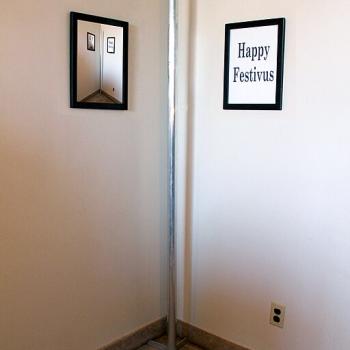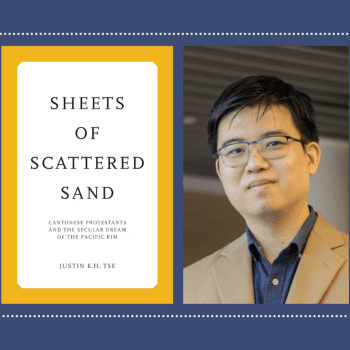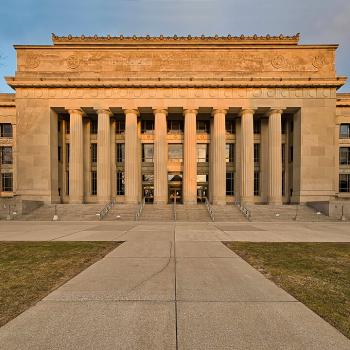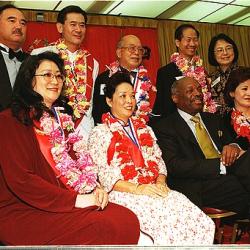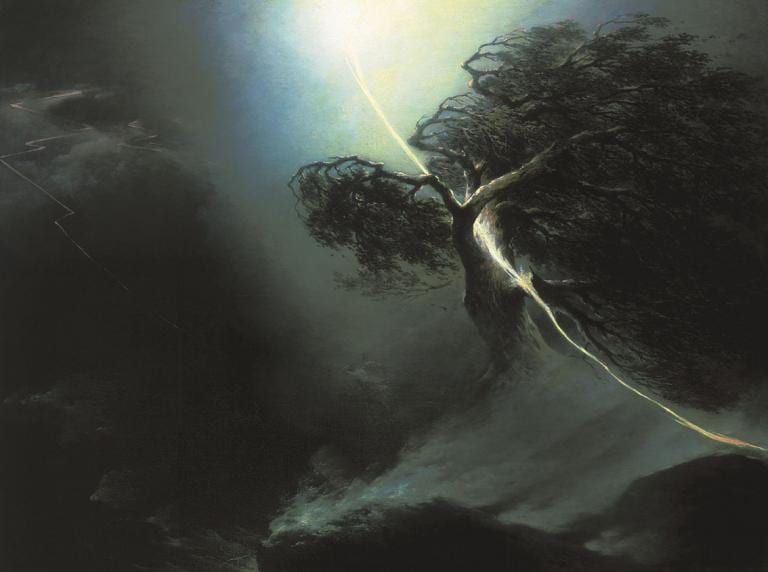
Amid the onslaught of horrifying news about the winter surge in California, one story weighs particularly heavy on my heart: three members of the same family, all Filipino American nurses, all dead of Covid-19 within a month of one another. First the mother passed away, and then the father died a week later. Their son was intubated but eventually succumbed to the disease in late January.
I knew about this family not because their deaths had made the news, but because the mother in that family was a beloved nursing school classmate of my own mother, who immigrated from the Philippines to work as a nurse in the U.S. in 1976. And when my mother shared the story with me during a weekly phone call, it was only one of several stories of friends and family falling ill and dying all around the world.
Filipino Americans have been hit hard by the pandemic. They account for 4% of American nurses but 31.5% of nurse deaths. Many of my Filipino American aunties, uncles, and cousins have been on the frontlines since the very beginning of the pandemic, serving some of the most impacted communities. In New York City, where several members of my family work as nurses, more than 30 Filipino American healthcare workers died by June. Amid the news of these casualties, my mother, a paragon of courage and duty, declared her own willingness to come out of retirement and return to the hospital to help.
It was out of grief and gratitude for my Filipino American community that I began to reimagine my own responsibility to rise to the moment. In late March, back when many of us were still in the toilet-paper-hoarding and Tiger-King-watching phase of quarantine life, I began to meet regularly with a close-knit circle of Filipino American pastors, theologians, and religion scholars to talk about the meaning of Filipino American Christianity in this moment of crisis. Together, we developed a collaborative research project studying Filipino American spiritual resilience during the pandemic. It was a significant pivot for me, a scholar trained primarily as a historian of immigration. Yet it was also the right decision—a project that was more than research, but an act of care for my community, whose past and present suffering has long been overlooked.
As we mark the one-year anniversary of the Covid-19 pandemic, it’s worth taking a moment to reflect on the traumas and transformations of the past year. How has the pandemic changed us? In particular, how has it changed us as scholars? Covid-19 has sparked abundant innovations in teaching, researching, and sharing knowledge. We’ve grown adept at giving lectures via Zoom and doing conferences online. We’ve learned to research digital archives and create crowd-sourced public history projects.
But for me, the pandemic has forced a more fundamental transformation. Through the fear, dread, and sorrow of the past year, I’ve rediscovered the mission that drew me to research and writing in the first place: a commitment to serving people and alleviating suffering. I’ve come to understand my work as a way to bear witness to my people’s pain—and doing so has offered me a way to attend to mine.
This past year has helped me learn to approach scholarship as a way to address the immediate needs of the community I love.
For Filipino Americans, the needs have been great. On top of a brutal disease that has claimed the lives of so many Filipino Americans, the pandemic has brought a surge of anti-Asian racism, as Asian and Asian American people have been scapegoated and blamed for the coronavirus. The issue of anti-Asian racism and violence is currently receiving significant media coverage, but even in the earliest days of the pandemic, Asian Americans were attacked on the subway, spat upon while walking down the street, and refused service at gas stations. Some of these attacks involved horrific acts of violence. In Texas, for example, a man stabbed a Burmese American family while “accusing them of infecting people with the coronavirus.” Stop AAPI Hate, which began tracking these incidents in March 2020, has received 3,000 reports of anti-Asian racism, discrimination, harassment, and violence. These incidents affected people I know: friends who shared stories of being screamed at and coughed upon while they were simply buying groceries or walking their dogs.
Along with many other Asian American studies scholars, I found ways to use my research skills to help. I started a research team at the University of Michigan that analyzes hate incidents reported in news media. A colleague created a crowdsourced syllabus to help teachers put coronavirus-related racism in historical context. Public health scholars studied the harmful impact of stigmatizing rhetoric—terms like “China virus” and “Wuhan flu”—on attitudes towards Asian Americans, while other researchers studied how politicians used these terms in order to hold elected officials accountable. Together, we brought increased attention to the needs of a community that often feels invisible in conversations about race and justice in America.
These examples illustrate another way that the pandemic has transformed my scholarship: not only is my research more focused on serving people, but it’s done increasingly in collaboration with other people.
For much of my career as a historian, I’ve worked solo, but the pandemic introduced me to a different approach. The shift toward collaborative work has owed in part to the fact that the needs have been so urgent. There is simply so much work to be done. In the project about Filipino American spiritual resilience, I lack the knowledge, networks, and expertise to study Filipino American faith communities on my own, so I’ve been working with a team of scholars from different disciplinary and denominational backgrounds. And in my work on anti-Asian racism, there is no possible way that I could search for, read, and analyze thousands of newspaper articles by myself, so I’ve been working with a team of 15 researchers hailing from universities in Maryland, Michigan, California, and Washington.
My research team and I have also realized that our work, which aims to serve the community, could only be effective if it’s directly informed by the people we aim to help. For that reason, I’ve learned to reach beyond the academy and do more work that involves direct engagement with leaders of Asian American community organizations.
For me, this level of collaboration has been new and thrilling and also humbling and terrifying. I’ve made many mistakes, and the work has sometimes been frustrating and slow. But I’ve also discovered the power of having a team comprised of people who bring different gifts—a deftness with databases, for example, or a skill at social media. I’m ashamed to admit that it took me nearly two decades of working as a researcher to discover that we can learn and discover and accomplish so much, if only we work together.
It’s perhaps surprising that this year of living in quarantine has been the year that I’ve discovered the joy of working with people. Yet maybe it’s not surprising at all. The pandemic has illuminated how some of the most mundane activities—a dinner at a restaurant, a trip to the movie theatre, a hug from a loved one—are deeply precious.
In the context of the pandemic, when the death of half a million Americans offers a potent reminder of the fragility of our existence, the importance of caring for the most cherished part of our lives—people—becomes even clearer. Over the past year, I’ve learned to call my mother and father more often, text my friends more often, and tell my daughter and my husband that I love them more often.
I’ve also learned to show greater love and care for the people who do scholarship with me. Grounding our work in a commitment to care for one another has emerged as a core responsibility of my research teams because the work that we do together has been so painful and personal. We’ve spent the past year reading endless stories of Filipino American death and accounts of violence and hatred directed toward Asian Americans. The work has been emotionally paralyzing, and the enormity of the pain to which we seek to bear witness has been sometimes so upsetting that I’ve found it difficult to do the most basic things—to eat, to sleep, to breathe. It’s also intensified other forms of ongoing pain: the trauma of experiencing racism and injustice in our own lives and the immense global suffering of the pandemic, including the loss of human connection, employment, housing, and beloved family and friends.
For this reason, my research teams have chosen to begin our meetings not with updates on scholarship, but with personal stories of struggle, joy, and hope. We’ve spoken of our pain as seriously as we’ve talked about our plans for investigating archives and analyzing data. We’ve attended to the grief that burdens our souls but also gives life to our scholarship. And we’ve put sorrow and love at the very center of our work, choosing not to set it aside, but to let it shape us as individuals and guide us as a community of scholars.
A few months ago, a fellow professor, hoping to keep her students focused and engaged, shared online that she begins her Zoom seminars by asking a simple question: to whom are you dedicating your work today? I’ve thought of this question often as I’ve sat in my office and attempted to find the courage and resolve to write a few paragraphs or read a few pages.
This essay is dedicated to my mother, who taught me to be brave and dutiful and wholehearted, and who celebrated her first vaccine dose with a trip to the donut shop.
This paragraph is dedicated to my daughter, who, despite having attended middle school through Zoom for a full year, still finds enough joy to dance every single day and enough strength to embrace her mother when she weeps at her desk.
This sentence is dedicated to my mother’s classmate, her husband, and their son, all Filipino American nurses who died of Covid-19 and who led lives that exemplified compassion and service.
This past year has made clear to me that there’s no shortage of grief and pain in the world, but also no shortage of love and hope. Indeed, it’s through this very grief and pain that some of the most important things are possible. This year of suffering has transformed me into a better scholar—one who is unafraid to feel pain and unafraid to act on that pain and approach scholarship as an emboldened, unabashed act of love and care for my community.
I decided to be a scholar nearly two decades ago, at the age of nineteen, in the immediate aftermath of September 11th. In those days of terror, uncertainty, and impending war, I believed that becoming a researcher would offer the chance to alleviate the world’s suffering. I believed that if I wanted to change the world, I needed, first, to understand the world.
I still believe in this vision, but after a year of this pandemic, I realize that I might have had things backward. Sometimes the world changes us, and in that way, sometimes the world forces us to change how we understand it.
Only then might we be able to understand the world better. Only then might we be able to love it better.




